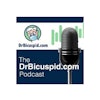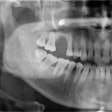
Nearly three-fourths of patients in the U.S. believe that routine dental appointments remain important during the pandemic and that the benefits of going to the dentist outweigh the potential risks of delaying preventive care, according to new data released on October 8 by the Delta Dental Institute.
Most patients responded that they not only believe the benefits outweigh the risks but also worry about the negative long-term health consequences as a result of delaying appointments, according to survey results.
"Even in this uncertain environment, Americans know they need to prioritize preventive oral healthcare," said Vivian Vasallo, executive director at the Delta Dental Institute. "Oral health is health, and routine dental care is critical to preventing long-term health problems."
Echelon Insights conducted the online survey on behalf of the Delta Dental Institute, which partners with Delta Dental companies to support oral health outreach, advocacy, and research. The survey, which was conducted from September 19 through September 25, covered 1,018 registered U.S. voters who self-reported as "likely" to vote.
These results are promising, considering a poll in June in which about half of adults reported that they or a family member skipped dental and medical visits due to COVID-19, despite a surge of people leaving home more frequently to shop, visit family, and work. Patient sentiment, as well as recent evidence of low exposure to the novel coronavirus in dental settings, may help bolster dentistry's recovery. Research has shown that dental teams at an oral medicine hospital in China did not develop COVID-19 while providing emergency dental treatment during the height of the pandemic, likely due to increased infection control measures. Other evidence revealed that dentists and dental assistants working during the pandemic in Italy had an estimated zero occupational risk of getting COVID-19 when they followed basic infection control protocols.
Of those surveyed in the current poll, 69% believe the benefits of maintaining good oral health outweigh the risks of being exposed to SARS-CoV-2. Additionally, 67% of respondents worry about the long-term health effects of missing routine care.
The survey also showed that patients understand that good oral health can result in better overall health. About 91% of respondents believe that taking care of their oral health now will help prevent other health problems later. Clinical research has shown a link between poor oral health and increased risk of heart disease, diabetes, and high blood pressure.
"These results underscore the importance of oral health to overall health," Vasallo said.




















